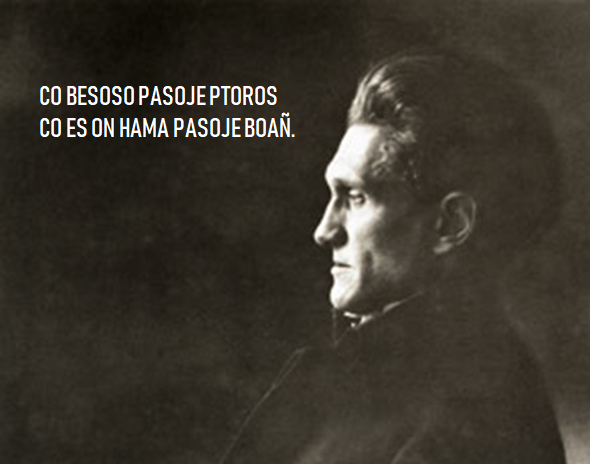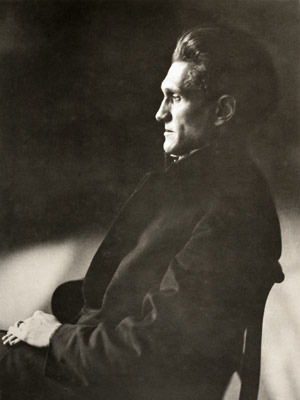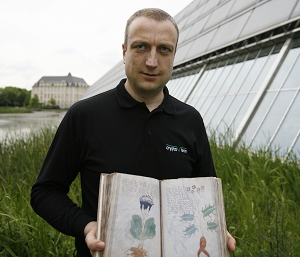German poet and translator Stefan George (1868-1933) created his own secret language. It has never been deciphered – probably because only two lines written in it have survived.
Have you ever heard of Stefan George (1868-1933), a German symbolist poet and translator of Dante Alighieri, William Shakespeare, and Charles Baudelaire? To be honest, I hadn’t before blog reader Stefan Zender told me about him in an email.
An elitist poet
According to Wikipedia, George was born in 1868 in Büdesheim, Germany. After his school time, he spent some time in London, Paris, and Vienna. George began to publish poetry during the 1890s. He initiated a literary magazine and founded a group known as the George-Circle, which, in addition to sharing cultural interests, promoted mystical and political themes. George was a homosexual.
During 1914, at the start of the World War, George foretold a sad end for Germany. In the 1920s, he despised the German culture, particularly its bourgeois mentality and church rites. He wished to create a new, noble German culture.
George’s poetry is characterized by an aristocratic ethos. He was a strong advocate of art for art’s sake. George apparently thought of himself as the messiah of a new kingdom that would be managed by intellectual or artistic elites.
George’s poetry was adopted by the Nazis and incorporated into their propaganda. After Hitler’s assumption of power in 1933, propaganda minister Joseph Goebbels offered him the presidency of a new art academy, which he refused. George died in Switzerland in December 1933.
Many of the members of the German Resistance to the Nazis were admirers of George, notably the Stauffenberg brothers. Although some members of the George group were explicitly anti-semitic, it also included Jewish people.
The secret language
According to Stefan Zender, George started developing secret languages in his youth. He used one of these until short before his death. Among other things, George translated the Odyssee to his secret idiom. Much to the regret of everybody interested in crypto history, George’s heirs destroyed almost everything related to his language after George’s death. The only text fragment written in this language we know about today consists of the last two lines of his poem „Ursprünge“ (“Origins”), which he wrote in 1904. Here it is:
Doch an dem flusse im schilfpalaste
Trieb uns der wollust erhabenster schwall:
In einem sange den keiner erfasste
Waren wir heischer und herrscher vom All.
Süss und befeuernd wie Attikas choros
Über die hügel und inseln klang:
CO BESOSO PASOJE PTOROS
CO ES ON HAMA PASOJE BOAÑ.
According to Stefan Zender, it is not known what these two lines mean. However, George’s secret language fragment has never been published in the standard crypto history literature, and I don’t know if linguists have ever taken a closer look at it. So, my hope is that more about this fragment can be found out, if experts look at it.
If a reader has a clue about what these two lines might mean, please let Stefand Zender and me know.
Follow @KlausSchmeh
Further reading: The Top 50 unsolved encrypted messages: 28. Thomas Urquhart’s encrypted poems
Linkedin: https://www.linkedin.com/groups/13501820
Facebook: https://www.facebook.com/groups/763282653806483/




Kommentare (11)